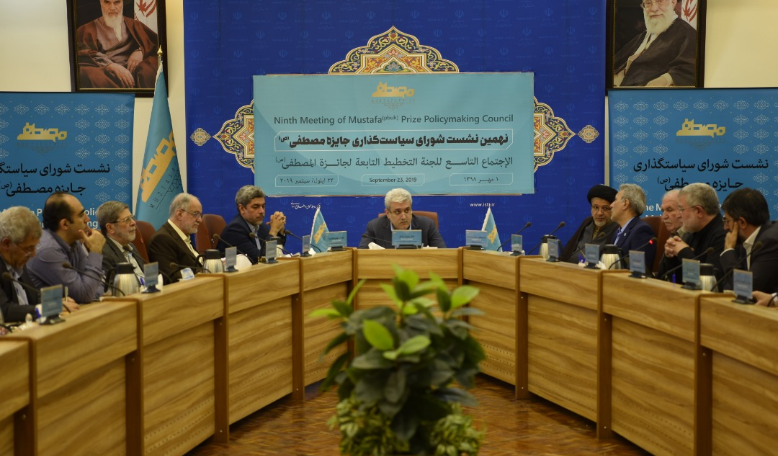Finalists at 2019 Mustafa(Pbuh) Prize enjoy variety in nationality and number


The results of this round of Mustafa(Pbuh) Prize enjoy more diversity in number, nationality, and residence of the laureates, which manifest great advance in organizing the event, the member of Mustafa(Pbuh) prize policymaking council Saeid-Reza Ameli announced on Monday.
MSTF Media reports:
Held biennially, the Mustafa Prize is a science and technology award, granted to top researchers and scientists of the Islamic world.
Chairman of Mustafa Prize policymaking council Sourena Sattari, the Coordinator-General at COMSTECH, the Committee on Scientific and Technological Cooperation of the OIC (Organization of Islamic Cooperation), Tariq Banuri, the Vice-Chancellor of Universiti Putra Malaysia Aini Ideris and a number of award’s officials attended the meeting.
The good news is that many citizens of the Islamic countries, who have developed their projects in those countries, are amongst the finalists for 2019 Mustafa Prize, the secretary of policy-making council Mehdi Saffarinia said during the Ninth meeting of the council .
He also explained about the cooperation between Mustafa Science and Technology Foundation (MSTF) and NanoBio Lab in Singapore for holding a 2-month sabbatical.
“Only one student was selected for the program, which was held under the supervision of Professor Jackie Y. Ying, A*STAR senior fellow and 2015 Mustafa Prize laureate,” he explained.
During the event, the head of scientific committee Hassan Zohour provided a report on their activities saying that the call for 2019 Mustafa Prize was sent to 202 authentic academic centers and 512 scientists in 48 countries.
“We have conducted eight meetings of the scientific committee, five meetings on information and communication science and technology, 14 meetings on life and medical science and technology, eight meetings on Nano-science and Nanotechnology and nine meetings on all areas of science and technology,” he explained.
Juries select finalists in different fields
The secretariat received 1649 works out of which, 199 ones were in the field of information and communication science and technology and four ones were selected for the final stage, he added.
In life and medical science and technology section, 1664 were received by the secretariat and four works will vie for the prize, he said.
Zohour also explained about Nano-science and Nanotechnology section, in which 172 works were sent into the secretariat, however, the jury does not recognize any of them as the laureate, he mentioned.
In all areas of science and technology section, one work is recognized as the laureate from 614 received work, he concluded.
The Mustafa Prize is awarded in four categories of information and communication science and technology, life and medical science and technology, Nano-science and nanotechnology and all areas of science and technology.
These areas include the following UNESCO fields of education: natural sciences, mathematics, and statistics; information and communication technologies; engineering, manufacturing, and construction; agriculture, forestry, fisheries and veterinary; health and welfare as well as cognitive science and Islamic economics and banking.
The event aims to improve scientific relations between academics and researchers in order to facilitate the growth of science in the Islamic world.